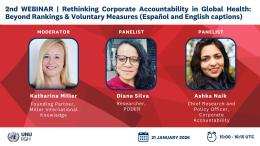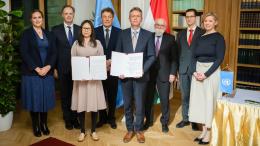2015 is a ‘year of action’ at the UN in several regards. This summer witnessed two reviews of peace operations and the peacebuilding architecture, respectively; in September, the Sustainable Development Goals were adopted by the General Assembly; in a few weeks, world leaders will gather in Paris to reach an agreement to address climate change. And 31 October marked the 15th anniversary of the UN Security Council resolution 1325 (2000) on Women, Peace and Security (WPS). The resolution was the first of its kind to explicitly recognize women as essential agents of change with respect to the UN’s peace and security agenda, calling for both greater participation of women and greater attention to women’s perspectives in the organization’s conflict resolution activities. Last month, the Security Council convened a High-Level Review to coincide with the launch of the Global Study on the Implementation of UNSCR 1325.
The Global Study is a comprehensive assessment on progress of the WPS agenda, setting out national, regional and global progress. National initiatives – including National Action Plans – are likely to be those that have most impact on the ground, and the WPS agenda must of course be led from the bottom. Here, however, we argue that the UN must get its own house in order if its pressure on member states to scale up their performance is to have credibility.
Uneven and limited progress
The WPS agenda set up in resolution 1325 is organized around the four pillars of prevention, participation, protection, and peacebuilding and recovery. It has been further developed in follow-up resolutions.1
In some of these areas, such as the prevention of and protection against sexual and gender-based violence in conflict, the UN has shown a serious commitment to act.2 In others, however, such as the participation of women in peace processes and decision-making mechanisms, progress has been “piecemeal and limited”.3 Indeed, only 23% of peace operations are currently headed by women,4 the share of female uniformed personnel in those operations lies below 4%, and that of female civilian staff is just over 20%.
Beyond these numbers, women’s meaningful participation in peace processes “is still symbolic or low”, including in those where the UN plays a key role. A recent gender audit of the Peace, Security and Cooperation Framework for the Democratic Republic of the Congo and the Region, for instance, found no reference to gender in the UN-sponsored agreement and no meaningful participation of women in the process. In mediation efforts, examples of inclusion of women are still hard to come by, even among UN mediators, and these processes tend to focus on short-term security objectives rather than on longer term inclusiveness.
One of the most concrete ambitions of the WPS agenda – ensuring that at least 15% of UN-managed funds in support of peacebuilding are dedicated to projects whose principal objective is to address women’s specific needs and advance gender equality5 – is still largely unmet. Not only do very few UN entities funding projects in conflict settings actually report on the use of gender markers (a total of four entities, including the UN Peacebuilding Fund, UNDP, UNICEF and UNFPA), they are also far from reaching – apart from UNICEF – the 15% target.6
15 years after the adoption of one of the most well-known and talked about UNSC resolutions: why is the UN still lagging so far behind in terms of implementation?
Lack of a clear accountability framework at the UN
One key reason for lagging implementation is the lack of a strong monitoring and accountability framework to assess UN performance on 1325 and define responsibilities for progress.
It took 10 years for the UN to develop a strategic framework and adopt a mechanism to track progress in the implementation of 1325. However, the strategic framework that was finally agreed upon in 2010 fails to hold any specific entity responsible for achieving outcomes.7 This lack of responsibility is clear and by design, according to the UN Strategic Results Framework on Women, Peace and Security; 2011-2020. It explains that the designation of “lead entities” in each area of implementation “does not indicate responsibility for the outcome but rather indicates mandate and expertise on this area.”
In concrete terms, this means that these indicators and targets are set with no clear idea as to who within the UN is responsible for their implementation.
Fragmentation of the agenda
Issues around accountability are compounded by an internal fragmentation on the agenda for gender equality within the UN and its agencies. The Global Study on 1325 brought the page count of major UN reports on women’s issues to over 1000 in 2015 alone.8 However, the overlap between these different studies and initiatives around gender equality is unclear. Similarly, there is little or no harmonization between the development, human rights, and peace and security agendas on gender equality. For example, the UN Women’s flagship Progress of the World’s Women report contained no meaningful reference to women in conflict-affected situations.
Another example is the clear lack of intersection between the WPS agenda and wider UN processes such as the post-2015 development framework.9 The 2030 Agenda for Sustainable Development adopted in September 2015 includes for the first time a goal on peaceful and inclusive society (SDG #16), however, this doesn’t include a specific target on women. While the inclusion of a dedicated goal on gender equality (SDG #5) is a welcome development, its isolation from the rest of the post-2015 agenda calls into question the so-called “gender mainstreaming” that the UN has adopted as a global strategy since the Beijing Platform for Action in 1995.
The failure to meaningfully adopt a gender lens in all areas of the UN’s work reflects what the Global Study identifies as a tendency to include women as “tick-box obligations” rather than a part of the core business of the UN.
Stereotyped views of women as gentle pacifiers
Finally, The Global Study identified the lingering “patriarchal cultural bias” and “gender stereotypes” as a major barrier to genuinely engaging women as partners. Such biases can be reinforced in subtle but powerful ways; for instance, one special adviser to UN Women, during a training event for female peacekeepers, stated that “women prefer for people not to be killed. If there’s a choice, women opt for life” (with the implication that men do not), and also stated that that “women may struggle with real combat, with pulling the trigger… There are jobs that women can do where they can be effective, but not necessarily the aggressive part.”
The evidence (or lack thereof) supporting these statements is contested and has given rise to heated debates that have the potential to be particularly harmful in the context of peacemaking efforts.10 As Professor Cheryl Hendricks points out, the argument that women should be involved in peace operations because they are gentle pacifiers “shifts the burden onto women to justify their presence in the security sector, rather than giving them access simply because, like anyone else, they have a right to be involved.” More than just problem of semantics, the reinforcement of such language can block progress on the equality agenda by reinforcing views of women as gentle and always vulnerable. But both men and women are involved in conflict, and on the flip side both therefore have a stake in peace and how peace is settled. Narrowed views of women, often based on a rhetoric of benevolent sexism, distract from this reality.
Getting it right
Security Council resolution 2242, adopted in October, is an indication of the UN’s continued commitment to the WPS agenda. It sets out many of the ways that the spirit of 1325 can be better implemented. However, it does not set out a clear agenda for evolving beyond business as usual. In order for the UN to get its own house in order and to reestablish itself as a norms creator on issues of gender equality, it should:
-
Set out a joined-up agenda and overarching strategy that links together the different review processes at the UN and create a credible follow-up mechanism for implementation of the High-Level Review with clearly delineated responsibilities;
-
Develop a clearer and coordinated monitoring and accountability framework and draw up step-by-step action plans. These should identify the specific responsibilities of different UN entities and set out short, medium, and long-term goals linked to a solid theory of change;
-
Ensure that resources reflect rhetoric by ensuring that the target of 15% of peacebuilding funds is implemented by all parts of the UN, without exception. Resources for the Peacebuilding Fund are supposed to be made up of 1% of total funding for peace operations, and the UN could consider putting in place a similar requirement for financing the WPS agenda in the field;
-
Communicate evidence-based policy in a compelling way to staff outside of headquarters, including through thorough and frequent training on gender, so that those working on the ground understand why inclusivity is important and to increase buy-in.
[1] 1325 has been accompanied by follow-up resolutions: 1820 (2008), 1888 (2009), 1960 (2010) and 2106 (2013), addressing sexual violence and abuse against women and children in conflict zones; resolution 1889 (2009) and 2111 (2013), calling for an increase in women’s participation in peace processes and aiming to strengthen women’s role in all stages of conflict prevention and resolution; and lastly resolution 2242, adopted last October to improve implementation of 1325.
[2] Four resolutions have been adopted that address sexual violence and abuse against women and children in conflict zones; rape and other forms of sexual violence have been included in the Rome Statute of the International Criminal Court; the UN has adopted of a zero-tolerance policy on sexual exploitation and abuse by UN personnel (although inconsistently implemented) and established a sanctions regime on sexual violence in armed conflict.
[3] UN Women, Preventing Conflict Transforming Justice Securing the Peace: Global Study on the Implementation of UNSCR 1325, p. 144.
[4] Report of the Secretary General, The future of United Nations peace operations: implementation of the recommendations of the High-level Independent Panel on Peace Operations, 2 September 2015, § 114.
[5] Policy Committee Decision no. 2010/20 of 14 September 2010
[6] UN Women, Preventing Conflict Transforming Justice Securing the Peace: Global Study on the Implementation of UNSCR 1325, pp.380-381. In 2014, the UN Peace Building Fund, UNFPA and UNDP were all below 10%.
[7] The list of proposed indicators is presented in the Secretary-General’s report on Women, Peace and Security, 6 April 2010, S/2010/176.
[8] UN Women, UN Women Progress of the World’s Women in 2015-2016: Transforming Economies, Realizing Rights, 2015, p. 342; UN Women, Preventing Conflict Transforming Justice Securing the Peace: Global Study on the Implementation of UNSCR 1325, p. 418; UN Department for Economic and Social Affairs, The World’s Women: Trends and Statistics, 2015, p. 260.
[9] Cordaid, GPPAC, WPP, Candid Voices from the Field: Obstacles to a Transformative Women, Peace and Security Agenda and to Women’s Meaningful Participation in Building Peace and Security, 2015, p. 46.
[10] See for example the controversy created by Francis Fukuyama’s 1999 article on Foreign Affairs, and the response provided by Barbara Ehrenreich, Katia Pollitt et al.
Suggested citation: Louise Bosetti, Hannah Cooper., "Where Are the Women? How the UN Is Falling Short on Gender and Conflict," UNU-CPR (blog), 2015-11-17, https://unu.edu/cpr/blog-post/where-are-women-how-un-falling-short-gender-and-conflict.


